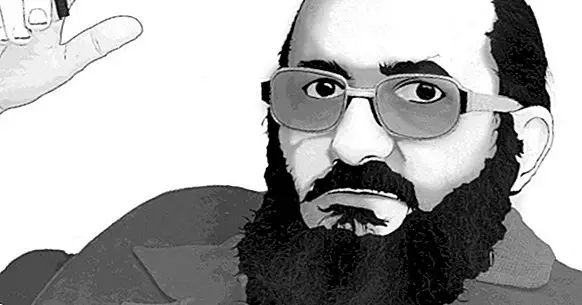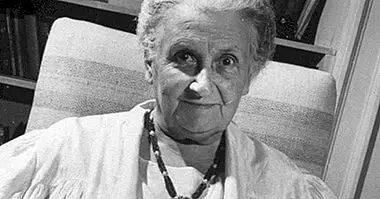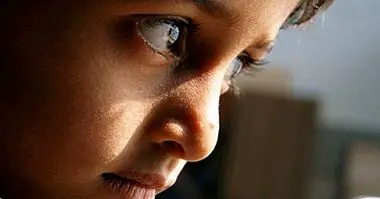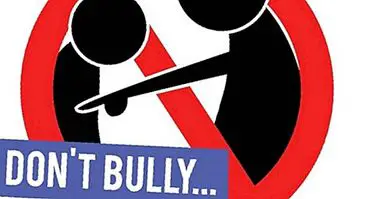What is Popular Education? Concept and practical applications
The philosophy and work of the Brazilian Paulo Freire have left a very extensive mark both in pedagogy and social sciences because they have allowed to establish dialogues and reflections on the development of educational practice in different contexts, especially in Latin America.
Then We will describe in an introductory way one of the key concepts of his work: Popular Education .
- Related article: "The Theory of Learning by Jean Piaget" (text by Bertrand Regader)
Education beyond school
The antecedents of the pedagogy can be located from the first stages of western philosophical thought. However, school and education as institutions that aim at the socialization of the youngest is mainly based on the values of the modern era.
In Latin America, modern educational institutions and practices were consolidated in the late nineteenth century along with other economic and political systems that had many consequences, some of them conflicting and even painful for populations and oppressed groups.
From there, different strategies were proposed, among which were school and public education. But his response was soon insufficient, which also led to other alternatives in the field of social sciences, which they were largely driven by the thinking of the Brazilian pedagogue Paulo Freire .
What is Popular Education?
Popular Education is a current of thought and action, that is, a theoretical and methodological orientation within the area of social sciences (although its strongest application has been in pedagogy and in social and community work), which has been very important for the development of programs aimed at the "popular" sector.
The word "popular" arises from the opposition between "the popular" and "the official", where "the popular" refers to a practice or thought that is opposed to the official. For its part, "the official" is a practice or a thought that is accepted by a majority, although it has generally been imposed and not consensual.
In more practical terms, The concept of Popular Education has been useful to exercise a resistance to the dominant models, not only educational but also political and social .
In this sense, it is a practice that seeks to create more just and more humane societies in defense of human rights, identities, gender, the environment, (among other phenomena that express social problems), trying to modify the role of actors that are little considered or that are normally considered as passive in the official models.
Where does it come from? Some background
Popular Education is nourished by cultural and community theories and is characterized as an integral proposal with political and ethical commitments. It is based on participation, dialogue and recognition of different knowledge during educational practice, which is understood not only to occur within the school, but in different spaces.
It is developed from the philosophy and proposals of Paulo Freire, who had made a long tour of places in Latin America, whose main characteristic was political oppression.
Freire had linked himself with different participatory movements and organizations and from that point on he became interested in systematizing some of his experiences. He had recognized the need to strengthen social actors, and to empower environments of participation and changes in mentalities through cultural and social production.
Some of these organizational projects are, for example, the Popular Culture Movement of Recife where Freire coordinated the Reeducation for Adults project. Likewise, the Popular Education current is influenced by different social and political phenomena that gave rise to the development of theories such as liberation theology, the theory of marginality or popular promotion, especially in the 60's.
- You may be interested: "20 Essential Pedagogy Books"
Education as a practice of freedom
The intention of Popular Education is to develop strategies to strengthen and conserve the community; more specifically the communication and political organization of historically oppressed popular sectors (understanding that these strategies should not be imposed, as traditionally had happened in Latin American territory).
In other words, understands pedagogy as a communicative action that has effects on the construction of the person and the collective .
From there, Popular Education reflects on the role of the educator and allows to go beyond the position of authority or to conceive it as the only bearer of valid knowledge; but he understands the educator as a mediator in the educational space.
This allows to consider the contradictions that the educational practice itself generates in the educator, who constantly sees himself in the need to decide between opening up to diversity or using the logics of imposition.
For this current, education is not a purely mechanical process, but it is a process that must take into account the subject of education, that is, its culture, its knowledge, its history, its expectations and its possibilities to project a future . In other words, try to recognize the other as a subject of knowledge, and not as a passive subject.
One of the problems with which Popular Education is currently facing is that it has often been equated with training, projects or programs developed by NGOs but that leave the social actors as passive. Because, it has been a project in constant construction and debate and that has inspired many social movements , not only in Latin America but around the world.
Related works
Other very popular works of Paulo Freire and that are related in an important way to Popular Education are Pedagogy of indignation, Pedagogy of dialogue and conflict, Politics and education, Popular culture, Popular education, Cultural action for freedom and other writings; and perhaps the two most famous are Pedagogy of the Oppressed and Education as a practice of freedom.
Bibliographic references:
- Santos, M. (2008). Philosophical ideas that underpin the pedagogy of Paulo Freire. Iberoamerican Journal of Education, 46: 155-173
- Rodríguez, L., Marín, C., Moreno, S., et al. (2007). Paulo Freire: a pedagogy from Latin America. Science, teaching and technology, 34: 129-171.
- Núñez, C. (2005). Popular education: an overview. Decisio Institute of Technology and Higher Studies of the West. Paulo Freire Chair / Guadalajara Mexico. Retrieved April 13, 2018. Available at //www.infodf.org.mx/escuela/curso_capacitadores/educacion_popular/decisio10_saber1.pdf



















